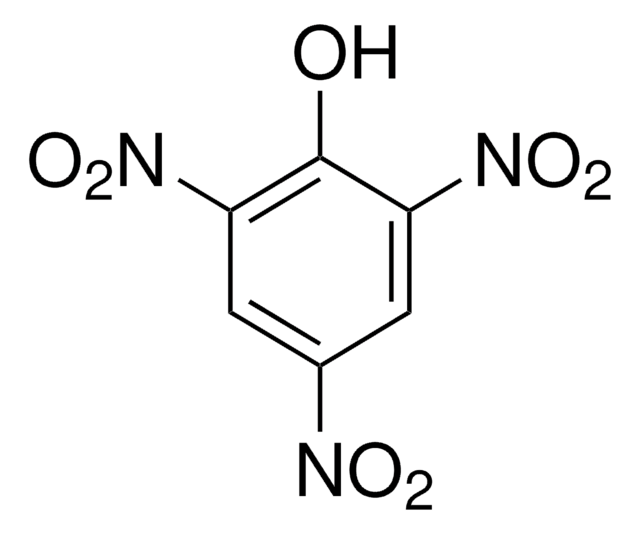73063
Alanine Dehydrogenase, recombinant
recombinant, expressed in E. coli, ≥15 U/mg
Sign Into View Organizational & Contract Pricing
All Photos(1)
About This Item
Recommended Products
recombinant
expressed in E. coli
Quality Level
form
crystals
powder
specific activity
≥15 U/mg
storage temp.
−20°C
Application
Alanine dehydrogenase (ald) is an oxidoreductase that is involved in taurin/hypotaurine metabolism and CO2 fixation. It is used in various enzyme assays and in kinetic studies .
Biochem/physiol Actions
Alanine dehydrogenase catalyzes the reversible reductive amination of pyruvate using NADH as an oxidation/reduction cofactor .
Unit Definition
1 U corresponds to the amount of enzyme which converts 1 μmol L-alanine per minute at pH 10.0 and 30°C (NAD as cofactor).
Signal Word
Danger
Hazard Statements
Precautionary Statements
Hazard Classifications
Resp. Sens. 1
Storage Class Code
11 - Combustible Solids
WGK
WGK 3
Regulatory Listings
Regulatory Listings are mainly provided for chemical products. Only limited information can be provided here for non-chemical products. No entry means none of the components are listed. It is the user’s obligation to ensure the safe and legal use of the product.
JAN Code
73063-BULK:
73063-10MG:
73063-VAR:
73063-50MG:
Choose from one of the most recent versions:
Already Own This Product?
Find documentation for the products that you have recently purchased in the Document Library.
M T Smith et al.
The Journal of biological chemistry, 268(15), 10746-10753 (1993-05-25)
The kinetic mechanism of alanine dehydrogenase from soybean nodule bacteroids was studied by initial velocity experiments with or without product inhibitors, dead-end inhibitors, or alternate substrates. Without inhibitors, double-reciprocal plots of initial velocity experiments showed intersecting lines, indicating a sequential
Xueli Zhang et al.
Applied microbiology and biotechnology, 77(2), 355-366 (2007-09-18)
Escherichia coli W was genetically engineered to produce L: -alanine as the primary fermentation product from sugars by replacing the native D: -lactate dehydrogenase of E. coli SZ194 with alanine dehydrogenase from Geobacillus stearothermophilus. As a result, the heterologous alanine
Toru Jojima et al.
Applied microbiology and biotechnology, 87(1), 159-165 (2010-03-11)
Corynebacterium glutamicum was genetically engineered to produce L-alanine from sugar under oxygen deprivation. The genes associated with production of organic acids in C. glutamicum were inactivated and the alanine dehydrogenase gene (alaD) from Lysinibacillus sphaericus was overexpressed to direct carbon
Senay Hamarat Baysal et al.
Artificial cells, blood substitutes, and immobilization biotechnology, 35(4), 391-403 (2007-08-19)
Urease and AlaDH enzymes immobilized on active PEG derivatives were encapsulated at different ratios within sheep erythrocytes and their activity, encapsulation yields and erythrocyte recovery levels were assessed. Encapsulated derivatives were administered at given dosages and at given intervals to
Sivagamisundaram Chavadi et al.
Journal of bacteriology, 191(24), 7545-7553 (2009-10-13)
To better understand the global effects of "natural" lesions in genes involved in the pyruvate metabolism in Mycobacterium bovis, null mutations were made in the Mycobacterium tuberculosis H37Rv ald and pykA genes to mimic the M. bovis situation. Like M.
Our team of scientists has experience in all areas of research including Life Science, Material Science, Chemical Synthesis, Chromatography, Analytical and many others.
Contact Technical Service







